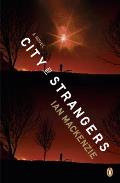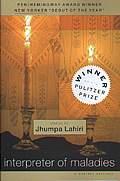[
Editor's Note: This is Part Two of a three-part essay; Part Three will appear tomorrow.]
 Summer came. A teacher's high perk. I finished work on the novel and assembled a catalog of literary agents to send it to. I labored over the query letter and the synopsis. One by one, with my girlfriend's help and encouragement, I stamped and addressed dozens of envelopes. (Fewer agents accepted e-mail queries then.) One by one, I received the form letters — so brief they hardly qualified as disheartening — and, far smaller in number, the quick, polite requests to see "50 pages" or "three chapters." To someone in my position, those tenuous forward steps contained the emotional force of ironclad guarantees.
Summer came. A teacher's high perk. I finished work on the novel and assembled a catalog of literary agents to send it to. I labored over the query letter and the synopsis. One by one, with my girlfriend's help and encouragement, I stamped and addressed dozens of envelopes. (Fewer agents accepted e-mail queries then.) One by one, I received the form letters — so brief they hardly qualified as disheartening — and, far smaller in number, the quick, polite requests to see "50 pages" or "three chapters." To someone in my position, those tenuous forward steps contained the emotional force of ironclad guarantees.
The season wore on. I wrote a short story; it was flimsy, and was deservedly sent nowhere. Writing and then sending a query letter to a literary agent fixes a young writer in a state of high emotion, and in the long, eerie silence that follows, the months of silence, that emotion spoils and wanders. It is like ginning yourself up for a fistfight and then finding that your opponent is absent. When you send letters to fifty literary agents, that emotion is multiplied fifty times over. One is told to forget about it; one can't.
September. The second year of teaching; all the distraction and stress of the classroom. But, I found, I was a better teacher. I entered the room more calmly and was less anxious for the bell to conclude each forty-five minute session. In the back of my mind hung those initial flares of response from the agents — requests to read my writing — but, with each, after a few weeks or a couple of months, a short rejection would come; or, worse, there would be nothing, a dead silence. I tried to be a better teacher; I felt more in control and so expected more of myself. I prepared my students for the state exams. There was one class of juniors I had had when they were sophomores, and to them I felt a special responsibility. Instead of relying on the scattershot selection in the school's book room, I taught books I loved — The Stranger, Giovanni's Room, Drown, Interpreter of Maladies, Lucy, This Boy's Life — which meant that I often had to run out the night before to Xerox the next chapter at the Staples in Union Square.
 A few more e-mails from agents; one actually phoned me to request the first chapters, which was exciting, but a few days later she sent an e-mail. (Phone calls are good news; e-mails aren't.) I tried to work on a new project: just a few paragraphs, a scene or two; it didn't feel like much.
A few more e-mails from agents; one actually phoned me to request the first chapters, which was exciting, but a few days later she sent an e-mail. (Phone calls are good news; e-mails aren't.) I tried to work on a new project: just a few paragraphs, a scene or two; it didn't feel like much.
After so much waiting, tangible good news came, by nature, suddenly. In December, two agents offered to represent the novel; I took my time making a decision. By January I had an agent and a novel out on submission. I was still a teacher, but it felt different; again I mistook a short forward step for a guarantee.
The book languished on submission. Editors praised and then rejected it; the rejections piled up in a slew. The emotional collapse replicated the feeling of receiving rejections to query letters, but now I felt like a failure on behalf of my agent as well. Spring ticked forward; I made the decision to leave teaching. I was going to freelance and, I believed, have more time to write. In April I got a call from my agent; not the call I'd hoped for. She was no longer going to be my agent, or anyone's; she was leaving to become an editor. What little remained of my book's submission cycle would be handled by her colleague. This did not sound promising. In a few months there would be a last, cruel glimmer of hope — an editor liked the book and was taking it to her bosses — but I knew then that I was not going to publish the second novel I had written.
My final weeks as a teacher went by. I told my students I wasn't coming back; I explained that I was leaving to finish writing a book. I realized that I would miss my students. I realized that I liked teaching; I liked having the identity of a teacher. If I hadn't wanted to be a writer instead, I might have stayed on as a teacher. Two years had passed since my graduation from college: if I had entered an MFA program, I would now have been finishing it; I would surely have written a lot more, and I would probably have had the attention of many more agents. Instead, I had the e-mail addresses of a couple of agents who liked the previous book and were "willing" to look at something in the future.
That was three years ago. My first novel — my third novel, in a sense — was published two weeks ago. I have no idea if attending an MFA program would have led to earlier publication; I have no idea what I would have written in Iowa or Syracuse or Austin or wherever. During the past three years I have had more time to write than I did when I was a teacher, but I have also had to cobble together each month's worth of wages from assorted freelance jobs which, in their own way, are as depleting as teaching was. Sometimes I think that the compression of those two hours at the end of the day, with my half pot of coffee, were the best quarters I could have had for writing. Certainly those hours were the best education: I learned that I could and would put aside everything else and, for two hours, be a writer. It was both a piece of knowledge and a skill. An MFA program wouldn't have taught me that.